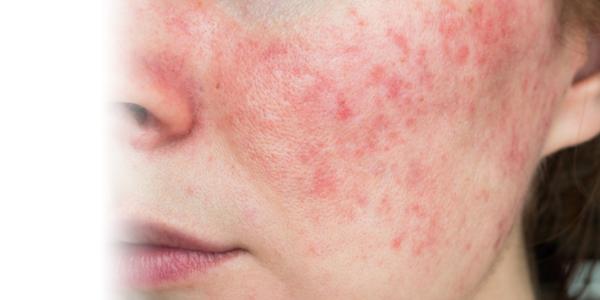


Rosacea is a common skin condition that causes chronic flushing of the face due to visible blood vessels. In some cases, it may also produce acne-like bumps. Signs and symptoms flare up for weeks or even months at a time. Rosacea is frequently mistaken for acne, eczema or even thought to be the result of poor hygiene — but that couldn't be further from the truth. The fact of the matter is that rosacea can affect anyone.
Between a lack of public understanding and the causes of this skin condition being unknown, people who are affected by rosacea often experience embarrassment. But the reality is that it's very common. The prevalence of rosacea in fair-skinned populations is estimated to be up to 22%. And while rosacea most often affects fair-skinned women, cases are still prevalent in men and darker skinned populations.
There are multiple types of rosacea, and they often overlap with one another. Understanding the key differences can help you find the treatment you need.
While the cause of rosacea is unknown, it has been linked to an overactive immune system, heredity, environmental factors or a combination of these. It's important to understand that rosacea is not caused by poor hygiene, and that it is not a contagious condition. Rosacea flare-ups may be triggered by:
For a skin condition like rosacea, additional irritation will exacerbate the symptoms. According to a study conducted by the National Center for Biotechnology Information, wearing a mask for long hours has been linked to exacerbation of rosacea. Proper skin care is especially important when dealing with additional irritants, such as harsh fibers. Luckily, there is no evidence to suggest that face masks cause the skin condition — just that they can aggravate preexisting cases.
Whether you've experienced more rosacea flare-ups lately or your skin is drying out, don't let embarrassment come between you and the many treatment options available. If you are experiencing persistent rosacea symptoms, make an appointment at El Camino Health for a diagnosis and proper treatment.
This article first appeared in the April 2022 edition of the HealthPerks newsletter.

Identify your risk factors and what to do if you are at risk.